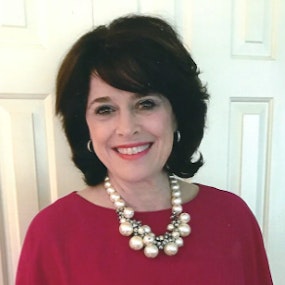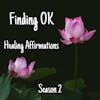Let Me Prey Upon You - Healing After Clergy Abuse
Sandy Phillips Kirkham is a survivor of clergy abuse and the author of, "Let Me Prey Upon You". Sandy was very active in her church growing up, her faith was the center of her life. When she was 16 her youth pastor groomed and manipulated her into a sexual relationship. After years of abuse she managed to exit the relationship and reclaim her life. Sandy kept her experience a secret for 27 years before she had to face it and begin her healing journey. Today Sandy is a strong advocate for survivors of clergy abuse as a board member of the Council Against Child Abuse and through her work with The Hope of Survivors. Today Sandy will be sharing her story, and we'll be discussing her incredibly powerful book.
Sandy Kirkham and her husband Bill enjoy life with their two grown children, two beautiful granddaughters, and two fairly well-behaved dogs. Sandy continues to use her voice to help victims of clergy abuse. She currently serves on the board of Council Against Child Abuse. Sandy has spoken before the Ohio Senate, a Maryland court, and appeared on a local television show in Boston. Her story, “Stolen Innocence,” was told in a documentary produced by The Hope of Survivors. Sandy works with survivors conducting victim support conferences. She has participated in The Voice of the Faithful (VOTF) panels moderated by SNAP (Survivors Network of those Abused by Priests), sharing her perspective from the non-Catholic point of view. Sandy has been a presenter/speaker at major events on clergy abuse including the Hope & Healing Conference. Sandy has earned a certificate of completion from the Faith Trust Institute entitled, “A Sacred Trust: Boundary Issues for Clergy and Spiritual Teachers.”
Sandy's Website: https://sandyphillipskirkham.com/
Sandy's Book:
https://sandyphillipskirkham.com/shop/
https://bookshop.org/p/books/let-me-prey-upon-you-breaking-free-from-a-minister-s-sexual-abuse-sandy-phillips-kirkham/13830913?ean=9781734195200
The Hope of Survivors: http://www.thehopeofsurvivors.org/
Council on Child Abuse: https://www.cocachild.org/
GRACE: https://www.netgrace.org/
SNAP: https://www.snapnetwork.org/
Finding OK: https://www.finding-ok.com/
Hecate's Links: https://linktr.ee/FindingOK
Support the podcast and become a Patreon member!
https://www.patreon.com/HecateFindingOK
Finding OK is funded entirely by the generosity of listeners like you!
https://www.finding-ok.com/support/
Letters for the Fire: https://www.finding-ok.com/blog/letters-for-the-fire-season-5/
Thank you for listening. BLM. Take care of yourself <3
Let Me Prey Upon You – Healing After Clergy Abuse
[00:00:00] Sandy: Listen, God forgives and God loves. I'm just saying that if he wants to continue to love my abuser, that's great, but he can love him sitting in the third row of the church. He doesn't belong in the pulpit.
[00:00:13] Hecate: Hi there. Thank you so much for joining me. I'm Hecate, and this is Finding OK, a healing podcast for survivors of sexual assault and any and all abuse. When survivors share, we share strength. You are not alone. In today's episode, I'll be speaking with Sandy Phillips Kirkham. Sandy was very active in her church growing up.
Her faith was the center of her life. When she was 16 years old, her youth pastor groomed and manipulated her into a [00:01:00] sexual relationship. After years of abuse, she managed to exit the relationship and reclaim her life. Sandy kept her experience a secret for 27 years before she had to face it and begin her healing journey.
Today, Sandy is a strong advocate for survivors of clergy abuse as a board member of the Council Against Child Abuse and through her work with The Hope of Survivors. In today's episode, Sandy will be sharing her story, discussing her healing journey, and we'll be discussing her incredibly powerful book, "Let Me Prey Upon You".
Before we dive in, if you enjoy the podcast, please consider supporting my work by becoming a Patreon member. Tiers start as low as $1 a month, and membership at any level changes my life. Tier 3 and 4 patrons gain access to a new supplemental patron podcast called Finding More, and Tier [00:02:00] 4 patrons get access to video episodes of both Finding OK and Finding More.
You could be watching this right now. Click the link in episode notes to learn more about membership benefits. Finding OK is funded entirely by the generosity of patrons and listeners like you. Thank you. I also want to let folks know that Letters for the Fire is back and I'm accepting submissions till the end of the year, so you've got a couple months left to send in your letters.
Letters for the Fire is an annual listener participation project that makes space for catharsis and healing. Listeners are invited to write a letter to their rapist or abuser and send it to me. I read all of your letters in a special episode at the end of the season and burn them for you. You can learn more about how to participate by clicking the link in episode notes.
And now it's time for... Trigger [00:03:00] and content warnings for this episode include the following: trauma, sexual assault, child abuse, religious abuse, clergy abuse, and pedophilia. Please check in with yourself and make sure you're all right to continue.
Thank you again for sending me your book. I absolutely loved it. It's so powerful. This was the first time that I ever had someone actually send me a physical copy.
[00:03:36] Sandy: Really?
[00:03:37] Hecate: It's so wonderful just actually holding
it in my hands.
[00:03:40] Sandy: I like the physical.
[00:03:41] Hecate: I'd like to begin by asking, are you okay?
[00:03:45] Sandy: I am. I'm in good shape. Life's good. Just finished my 50th class reunion organization of that thing. So that's over. So I take a deep breath and it's over. Yeah.
[00:03:55] Hecate: Wonderful.
[00:03:55] Sandy: Good.
[00:03:57] Hecate: And I'd love to hear a compliment that [00:04:00] you've received that you've never forgotten.
[00:04:04] Sandy: That I have a pretty smile and I'm well
organized.
[00:04:09] Hecate: And what is your favorite color or color combination and what do you associate
with it?
[00:04:16] Sandy: I love pink. I think it's a bright happy color. That's my favorite color, pink.
[00:04:23] Hecate: All right. I'm going to be switching my little moon lamp behind me. It's a pink for you.
[00:04:30] Sandy: Oh, good.
[00:04:32] Hecate: If I had to summon you in a ritual, what five things would I place as offerings at each point of the pentacle on the floor?
[00:04:43] Sandy: I would have a candle. I would have a book. I would have a camera and I would have flowers, and I would have a picture of my family.
[00:04:58] Hecate: Oh, I love that.
What kind of [00:05:00] flowers?
[00:05:01] Sandy: Doesn't matter.
I love them all. My front yard and backyard are absolutely covered in every kind of flower.
[00:05:07] Hecate: Oh, wonderful.
[00:05:08] Sandy: I truly don't have a favorite and I think they're all in their own way, unique and pretty.
[00:05:14] Hecate: I love that.
I'd also love to hear 3 essentials to your self care.
[00:05:21] Sandy: Naps.
[00:05:22] Hecate: Yeah.
[00:05:25] Sandy: I like a protein shake in the morning.
So I, I make sure I do that every morning. And I work in my garden.
[00:05:33] Hecate: Nice.
Do you have a specific kind of garden?
[00:05:37] Sandy: It's
mostly flowers. I don't do any food or vegetables or anything like that. It's, it's all flowers, but every morning, it's my routine to get up and do some deadheading and I water and I fertilize.
And I just walk around the perimeter of my house, enjoying my flowers. Some people said when they see my house, because it is truly lots of flowers. They'll say, Oh my gosh, this is so much [00:06:00] work, and I just don't find it to be work. I thoroughly enjoy the pleasure that it gives me.
[00:06:05] Hecate: That's wonderful. Oh, it must be incredible.
It must be quite a site with with all the love that you pour into it. That's that's wonderful. I'd like to to move into talking a little bit about clergy abuse and your story. I'd like to start actually by just talking about the church as an environment that can be the perfect hunting ground for a
predator.
[00:06:37] Sandy: Well, churches are perfect, like any organization where there are vulnerable people. So the church is full of people who come to the church because they're in need or they're looking for something spiritual in the life. So they're already opening themselves up to an individual that maybe they wouldn't normally open up to.
And people with needs, there's a more likelihood of being abused because they are in [00:07:00] an emotional state that requires some kind of help. So that's the 1st thing.
[00:07:04] Hecate: Yeah.
[00:07:05] Sandy: The other thing about churches is that it's set up as a community. We're taught that this is our family. We call each other sisters and brothers in Christ.
And so we don't come with the same awareness and red flags that we might see in a workplace because we automatically assume that when we walk into a church, it's safe. So our guard is down a little bit. And so predators know that, and it's a high number of clergy that do abuse because they know that not only do they have a group of people who look up to them,
who admire them, but probably aren't going to question them because they're the man of God. And they understand that the power they hold over these people makes the person they may want to abuse and go after much more vulnerable to them. And they're very good at selecting and looking [00:08:00] for the person who's most vulnerable.
They zero in on the person who maybe is going through a divorce, a child who's being bullied, someone who appears to be shy or lonely, and they will tap into those vulnerabilities, pretending to be their friend, pretending to help them and because they're the pastor, the priest, or the rabbi, the victim has no reason to doubt that they have motives other than pure and godly.
[00:08:28] Hecate: Yeah, it does
place them in the perfect position of power.
[00:08:32] Sandy: And not only does the victim, not question, let's say the victim is uncomfortable around this person for some reason, or he touches the individual in a way that they're uncomfortable.
They're less likely to question his behavior as I did because he is the pastor, but not only is the victim less likely to question the behavior, those around the abuser will also be less likely. They may see a red flag, or they may think, you know, I don't think he really should [00:09:00] be hugging her, or I don't think that's really appropriate, but because he's the pastor, they will not question him, or they don't want to accuse someone that they see as this wonderful godly person and accusing him.
So they tend to say things like, well, that's the pastor's way, or, you know, maybe it's inappropriate a little bit, but it's the pastor, so his motives must be pure. He doesn't mean anything by it. So what I tell people is, if it's behavior that you would question in your neighbor down the street or behavior, you might question from a stranger.
Don't dismiss it because he's just the pastor or the priest or the rabbi. If it makes you feel uncomfortable, then you need to pursue that and, and, and recognize that maybe that is a red flag of something that shouldn't be happening.
[00:09:49] Hecate: I'd like, if you're comfortable, to talk about your story, and your experience with clergy
abuse.
[00:09:56] Sandy: So, I started attending church when I was about 8 years old. My [00:10:00] parents didn't attend. They were divorced. And so my neighbor friend asked me to go with her one day and I absolutely fell in love with everything about the church at a very young age. Because my parents were divorced
my home life was kind of chaotic. I had just moved in with my stepfather. I didn't see my dad much. So church kind of became my safe haven. It became the place where there weren't any problems. I could, I could leave home and be in this environment where I was loved, I was cared for. I went to vacation Bible school.
I attended church camp. I mean, it was just a place I absolutely loved. And then as I got older, I became deeper in my faith. And so I started doing things like teaching Sunday school and leading retreats. I was baptized when I was 13, and that really was the turning point of my faith. I, I really felt a spiritual awakening with my baptism.
Shortly after I turned 16, our church hired a new youth pastor, and he was like any other youth pastor we'd ever had before. He was very charismatic, dynamic. And even though he was about the [00:11:00] same age, around 30, that our other pastors had been, he was much more in tune with the kids. He, he dressed like we did.
He wore cutoff jeans. He had sideburns. He drove a convertible, you know, in the vernacular of the seventies, he was hip.
[00:11:13] Hecate: I was going to say the exact same thing, hip. Yeah.
[00:11:16] Sandy: Yeah, hip in the 70s. I mean, that's kind of where he was. And he was very charismatic and very friendly. He was very demonstrative and hugging people because this again was like love in the 70s.
And so it was a dramatic change for our church, but everyone fell in love with this man. Within a short period of time, our church was growing in numbers. People were coming from all over to hear him preach. He was very, very good. It was like a cult, really, and we treated him like a rock star.
So, because I was a leader in the church when he came to our church, it was to no one's surprise that he would tap into me to be one of the leaders of the youth group. So he was putting me on committees, he was telling me how wonderful I was, and I just was on cloud nine because [00:12:00] I saw that I was helping the church,
I was helping God, and I was helping his ministry. And so, I didn't really see any red flags in the attention that he was giving me, nor did anyone else. He, like I said, he was very charismatic and just demonstrative toward everyone. But, uh, one night. After a youth group meeting, he stopped me in my home in the hallway.
It was after everyone had left and he told me how wonderful I was and how much he appreciated all I had been doing for the church. And then he began to caress my face. And he bent down and he kissed me and it was a kind of a quick general kiss, but it was on the lips. And I just kind of remember thinking, Oh my gosh, what is he doing?
I think he just kissed me. But I was so stunned and part of me was saying, well, this is my youth pastor. He wouldn't be doing anything he shouldn't be doing. So I thought, well, I just misunderstood this. I babysat for his family in the evening because his wife worked evenings. So this gave him the perfect opportunity to be [00:13:00] alone with me and continue this grooming process of telling me how great I was.
He would give me books to read about the Bible. We'd sit and talk about church. Again, none of this seemed out of line for me. And honestly, at that age, I'm 16 years old. I love the attention. I felt special. And that was, that was his goal to draw me in to trust him so that when he went to the next step, Which was about a year later.
One night I was babysitting and he took me into the living room. He put me on the floor and he began undressing me. And then he took me upstairs and had sex with me. And that moment is when I knew the line had been crossed. I could justify the kissing and the hugging. I couldn't justify this. I knew this was wrong.
And yet I don't, I couldn't explain how I ended up in that bed in his bedroom. I was just in shock, and I described in the book, you know, how I felt frozen and I didn't know how to respond. I didn't know what to do. [00:14:00] Once he crossed that line, he became a Dr. Jekyll and Mr. Hyde. He became much more controlling.
He became violent. I was no longer this special person. All of a sudden, he treated me like I wasn't very smart. He really kept me under his thumb and controlled me as to even like, where I could go, how I was to dress, what people I could see. And he did this under the guise that this was now we were committed to each other because we'd had sex and that we were married in God's eyes.
That's what he told me. This was ordained by God. And again, I'm a young girl. I'm trusting this person. I didn't want to lose the attention that I was getting from him, but I didn't want to be having sex with him. So I felt trapped. That's the only way I can describe it. There was no way for me to find a way out of this in my mind.
And of course, he would tell me, if you tell anyone, no one's going to believe you. And whatever happens [00:15:00] to me is going to be your fault. And so I just knew that there was no way I could tell anyone. Who would believe me? I mean, I couldn't even believe this was happening to me.
And so I just accepted the relationship and I allowed it to continue because I felt powerless. I felt like I had no voice. I felt like no one would believe me and I didn't know what else to do. I just didn't know what else to do. And so the relationship continued for about five years. And during that time, he became more violent.
Um, I became very unhappy. I became depressed, and yet I stuck it out because I didn't know what else to do. And in my mind, the easiest thing to do was just to accept it, that this was my life. I knew that I'd never get married. I knew I'd never have children, and this would only be over until he said it was over.
Until one night a couple of people from the church got suspicious and they followed him and found us together in a [00:16:00] hotel room. And that started the process of having to move him to another church. He was called in by the elders. I don't know what he told them what narrative he gave them. I was never asked any questions.
I was never given any counseling. I was just kind of left on the outside, looking in, waiting for whatever was going to happen to him and what they were going to do. He eventually moved. He was given a going away party. And shortly after he left I was called in by the elders and I was told that because of my behavior, I was to leave the church and I was devastated.
I absolutely love that church. It was the only church I ever knew. And I watched them forgive him. And yet they weren't going to forgive me. And not that I needed to be forgiven for anything because it was totally his responsibility for what happened. But at that time, I can only see it as, they're blaming me.
They are blaming me. And that's what churches still do today. It's easier to blame the [00:17:00] victim. It's easier to make excuses for the pastor. Well, you know, he had a bad marriage or well, we've all sinned and fallen short of the glory of God. He made a mistake or look at all the good things he's done. We shouldn't let that just negate this one thing.
So they tend to make excuses for the pastor. And look for reasons to blame the victims because it's easier. It's easier to do that and accept the situation than to look at the truth, which is to say that this pastor took advantage of his position. He took advantage of his title and used a member of his congregation for his own gratification.
And that is wrong. Up and down the pike. It doesn't matter. No matter what, it was always his responsibilities to maintain the boundaries of his ministry. And once he crossed those boundaries, anything that happened after that was always going to be his fault. And yet churches don't always see it that way.
And certainly my church didn't back then.
It was a very [00:18:00] difficult time in my life. My self esteem went just to the bottom. I felt worthless. One of the things that he would tell me over and over, and this is gaslighting, and this is also how
predators and abusers keep their victims in line. They tell you things over and over to make you finally believe that whatever he's saying is the truth. So two things he would tell me over and over was one that I was no longer a virgin and that no one else would ever want me and that he was the only one that could love me.
And then he would always say to me, there's no way you'll ever be able to leave. You can't leave me. You know that I need you and you know that I love you and you can't leave me. And I'm thinking, I'm already confused. I'm thinking, well, how would I leave him? I don't, who would I tell? I can't get out of this.
I mean, it was always, it was either he made me feel guilty forever wanting to leave or telling me there was no possible way I could leave. So that's what kept me stuck.[00:19:00]
[00:19:00] Hecate: Well, and he was
highly controlling in your relationships. He, he cut off support and I mean, just built the situation to keep you trapped and kept
programming you.
[00:19:12] Sandy: Yeah. And in the beginning he does what all abusers do. They pretend to be your friend. They pretend that they're going to help you with your problems. Cause again, they're seeking out people who have issues in their life. They're seeking out people who have a need to be filled and they're going to swoop in
and pretend to fill that need. And in many ways, they might. You know, I didn't see my dad during my teenage years so he was like a father figure to me. And so he filled that need. But the purpose of filling that need was not because he cared about me. It was to get me to be dependent upon him. It was to get me to trust him so that when he made that sexual advance toward me, I was going to trust him and not question his behavior, which is exactly what happened.
And that's what predators do. The first thing they do is they're going to target their [00:20:00] victims. They look for the victim that's going to be most vulnerable that they feel like they can take advantage of. And then they're going to establish some kind of a trust. They're going to pretend as if this person is someone
they can trust they want the victim to trust them and they do this by giving them gifts by singing their praises, like, you know, putting them on committees like he did with me. They develop a trust. So they targeted the victim with vulnerabilities, they establish a trust. Then they pretend to meet those needs, and then they start to isolate and seclude the individual because they need that person to totally be dependent upon them.
And they don't want them too close to anybody outside that little circle because the fear that they might tell someone. So they start to pull them away from their friends and their family. And when they finally get them sucked in then they start to sexualize the relationship and it can start as it did in my case with a quick innocent kiss so that if I had told someone [00:21:00] that night, he could have easily said, Oh, I'm sorry.
I meant to kiss her on the cheek or I don't know. I just I, or she just misunderstood what I did. So that's why it's very subtle in the beginning. Sometimes it can start with a text that's sexualized, or tell an off color joke. It starts subtle enough that the victim brushes it off. And then once they've sexualized the relationship, then they keep that victim by threats.
You know, if you ever leave me, this is what's going to happen. Or it's by blame and guilt. Well, you're just as much to blame as I am. Or you, you didn't say no. So, you know, why do you think you are going to not be blameless in this? So all of those things are the tools that predators use.
[00:21:47] Hecate: There was this incredible moment when I was reading your story, that really stood out to me.
And a part of that was he had you under such emotional and psychological control that [00:22:00] he was controlling you long distance for a time, even after he had been moved to that new position. And there was this moment that you broke free where he said, well, you have to come, you know, this weekend.
And you said, "I can't", even after he threatened you. And I wanted to ask about that moment and about where you found that strength to say "no", and to say, "I can't", and to ignore his threats and to break
free.
[00:22:33] Sandy: So that situation was once he moved, people said to me, after he moved, aren't you glad it's over?
And I remember thinking, well, it's not over. It's it'll be over when he says it's over. And I think that just shows you the power he had over me that I still couldn't break away that he had that. Mostly I felt guilt. I think that I needed to stay in this relationship because I committed to him and I couldn't hurt him and I couldn't break this off.
So once he [00:23:00] moved he would still insist that we talked on the phone and once I went down there. And then the next time he called, he said to me, I want you to come down. And I, I had plans and I didn't, I didn't want to go. I mean, I really did not. I wanted this relationship to be over.
And so at that point, I'm sitting there thinking, I'm crying. I'm sobbing on the phone. I'm begging him not to make me come down there as if I have no control of the situation. And he, he finally said something to me that he had never said before. He said, if you don't come down here, I'll never speak to you again.
Now in the past, that would have, I would have said, okay, I don't want that to happen. I'm sorry. I'll, I'll do whatever you want. But when he said those words that moment, I took my breath in and I thought, this is your chance. Maybe he will never speak to you again. Maybe this is how you can end it. And I
simply said, I didn't say it forcefully. I didn't [00:24:00] say, no, I'm not coming and hang up on him. I was crying and I said, I just, I just can't. I just can't. And he said, I'll never speak to you again. And he hung the phone up. That's when we had old phones where you could hang up on somebody and now he didn't keep to that threat.
He called me the following week. He would call me after that, but I, I felt free at that moment because I had, I had stood up to him as weak as it was. I stood up to him and I felt then I knew it, it was over and that no matter what he said to me after that. Now, that didn't mean that I still didn't have guilt feelings.
It didn't mean I still wasn't thinking about him. It didn't mean that I still worried if I did had done the right thing. I mean, this wasn't something that he controlled me for five years and all of a sudden I was free and it was over. I carried a lot of trauma for a long time, but that moment of physically keeping contact with him was finally over.[00:25:00]
But then for 27 years, I never told anyone. My husband didn't know. My family friends didn't know. There were a few people at the church at the time who knew because as rumors start, everyone was wondering why he was leaving, and of course the elders were aware of why he was leaving.
And so the gossip mill was going pretty quickly before he left. So there were a lot of people at the church who knew. But once I left that church and started a new life, everyone around me had no idea that, as I perceived it in my mind that I had had an affair with a married man who had two children. In my mind
that's how I saw my relationship with him. I was having an affair with a married man. I did not see it as abuse or understand that I had been sexually abused by someone in a position who was to take care of me and not abuse me. It wasn't till 27 years later that that moment occurred to me that, wait a minute,
what he did was wrong and he had no right to do it.
[00:25:59] Hecate: Can you talk [00:26:00] about that moment when that shift happened when you were no longer able to repress it and it came flooding back to you and you really had to,
to start dealing with it.
[00:26:11] Sandy: So through the 27 years, I had many triggers where something would remind me of him.
Or I would have an anxiety attack when I went into church. Every time I passed a minister's office, didn't matter what minister it was. It had nothing to do with that particular minister. I got a knot in my stomach. And for 27 years, that's how I responded. So there were triggers throughout the years, but I managed them.
Sometimes they were harder than others. Sometimes I was actually having a full blown anxiety attack and I had to mask it and seem like I was okay. So I got pretty good at doing that. You know, I was very comfortable thinking, you know, this is just how I'm going to have to live my life. These things are going to happen throughout my life and I'm going to have to manage them and deal with them.
But this one particular time. I was driving to see my daughter in college. She was playing in a golf tournament. [00:27:00] And at that time, you know, you didn't have GPS. So you're trying to navigate through the back roads of Tennessee and I'm trying to find out where I'm going. I had a big old Atlas on my passenger seat.
And I'm trying to read that.
[00:27:10] Hecate: Oh gosh. I remember those things.
[00:27:11] Sandy: And I happened to notice. As I'm driving, there was an exit sign for Queensgate, Tennessee, and that is where he had moved after leaving our church. And all of a sudden, it was like, I'm in the very, very place that he went to go after he left our church and I'm breathing the same air
he's breathing. He could be on the highway with me. He could be next to me. And I just felt his presence like, I never felt it before. And I began to sob. I was absolutely losing control. Now, I'm on an expressway. I remember I was behind this semi truck thinking, maybe I just follow this truck. Eventually, I just pulled to the side of the road.
And I, I, I couldn't explain at that moment why I was feeling this way. Because I thought, you know, this is crazy. I haven't thought of this man in [00:28:00] 27 years, and I need to get control again. And I need to get back in the car and go on my way. But I sat by the side of the road and sobbed for about 20 minutes.
And what I was feeling was this feeling of, he hurt me. He hurt me. I still couldn't see it as abuse. But there was this moment in my feeling that this wasn't a man who really cared for me or he wouldn't have done what he did to me. And that's began my journey of healing. It began my journey of understanding that,
no, I didn't have an affair with a married man. I had a pastor who abused me. And so that's what started my journey to be able to come out on the other side. So to speak.
[00:28:44] Hecate: Can you talk a little bit
about what that journey entailed?
[00:28:48] Sandy: Initially I spent two weeks in just a complete mess. My husband would leave for work and I spent all day sobbing, he would come home and I would put on my happy face and try to control it because I [00:29:00] wasn't sure what I wanted to do.
I'm thinking, you know, it's 27 years later. I'm happily married. I've got two kids. Why? Why do I want to deal with this again? But after about two weeks, I recognized I couldn't live like this. And so the first thing I did, I Googled everything I could and learned everything I could and read everything I could on clergy abuse or sexual abuse in general.
And that's when I learned the terms of grooming, manipulation, gaslighting, love bombing. And once I learned those terms, it became very clear to me. That's what he did to me.
[00:29:35] Hecate: It was textbook.
[00:29:36] Sandy: It was. They all are. I mean honestly.
[00:29:39] Hecate: Yeah, yeah.
[00:29:39] Sandy: The order may change, but they, they follow a pattern in order to trap their victims and abuse their victims.
So that was the first thing I did. And I tell victims. That's the first thing you need to do. You need to understand what was done to you and you need to understand that you were targeted. You know, it wasn't because I was extra nice to him or that people thought I [00:30:00] flirted with him or whatever reasons people thought.
I had no interest in this man other than he was my pastor, but I had to see that he had chosen me. He picked me out in order to take advantage of me. So that was the first thing I did. And then, as I began reading, I understood that I needed to tell someone, and that was the hardest thing of all, because I had spent 27 years keeping a secret and I was getting really good at it.
And I thought I'm going to my grave with this; and after 27 years, I don't think anybody's going to find out about me. Because I thought, what are my friends going to think it? First of all, I tell them I had an affair with a married man, but I got kicked out of a church. How bad do you have to be to be kicked out of a church?
I didn't want them to know that about me. So I kept this secret, but then I knew I couldn't move forward unless. I told someone, so I told my best friend, she was a counselor and it was the most difficult words I've ever had to speak because in [00:31:00] the back of my mind, I could hear him saying, don't ever tell anyone and you're going to be in trouble.
And I kept thinking once I say this, I don't know what's going to happen to me, but something bad's going to happen. Of course, it didn't. But that was the fear I had. I couldn't get those words out. I then told two or three more friends, my little group of friends, and they became my support group. And it was, it took me, let's see... probably five months after I had that moment on the side of the road, that I told my husband.
And it wasn't because I didn't trust him. I knew he would be understanding. I knew he would care about me. But I also knew once I told him, I couldn't risk that he just might wonder, you know, why didn't you tell me sooner? Or what, what would change with him sexually with me, if anything? I was so afraid of the consequences that I was so hesitant in telling him.
Of course, it was all unnecessary worry because he couldn't have been [00:32:00] anything but more loving and kind. He was caring. He was understanding. But that was the next step in. My healing was to tell people, you know, I couldn't tell a lot of people and I couldn't tell my entire story. If you've read my book, you know, there's a lot of things in there that are pretty personal.
And so when I was telling my friends, I was telling them in more generic terms, you know, well I was sexually abused, I didn't go into detail of what that meant. But it was only as my healing progressed that I could let go of those stories in my life because I had nothing to be ashamed of.
I, I, I should be able to stand up and say, here's what he did to me physically. Because I'm not to blame. He is.
[00:32:41] Hecate: It wasn't your fault. Yeah.
[00:32:43] Sandy: It wasn't my fault and that's a real big hurdle for victims to get over because we think, well, there's something I should have said or done, or why did I not, you know, not babysit late? Why didn't I do this?
Why didn't I do that? Let me tell you, as a victim, if you were [00:33:00] truly in a vulnerable spot, and this was a true predator, you didn't have a chance. It's like the wolf after the sheep. You don't have a chance. You were trapped. That's the only way to look at it. And so self blame from victims is one of the hardest things to let go of.
[00:33:17] Hecate: What has helped you the most in letting go of that self blame?
[00:33:23] Sandy: Understanding that because of his position
and who he was, he was the one that needed to stay within the boundaries of his ministry. He took an oath to guide and protect congregation and he broke that oath and he took advantage of a vulnerable teenager. And that to me said, this wasn't about love, like he told me. This wasn't in God's will. I had to unravel all those lies that he told me in order to free myself.
And once I could remind myself and I had to do that, I had to remind myself over and over. Sandy, this was not your fault. You had [00:34:00] no choice in what he did to you. It was all his fault. Any shame or blame I felt lay squarely on him and that that once I could really comprehend that and believe it, then I could move on.
Now, it didn't mean I still didn't have triggers. It doesn't mean that I still didn't have anger. I tried very hard to let go of him because I discovered that my anger and my frustration, the lack of any consequences for him, it wasn't changing anything it was only perpetuating the feelings for him inside me over and over and over again.
So the anger wasn't helping. I needed to say, I can't change the past. I can't make him a better person. I can't do anything other than to live my life the way it was supposed to be lived and not be defined by my abuse. It will always be a part of me. I can't, you know, doesn't go away. But I had to want to live my life and not focus on what he had [00:35:00] done to me.
Not easy. Not easy.
[00:35:06] Hecate: I'd like to go back to you telling your husband for a moment because he was absolutely incredible. And it sounds like he's just an absolutely just a wonderful, wonderful man and such a supportive partner. I wanted to ask, in case there are partners listening.
What was it that your husband did that made you feel loved and supported?
[00:35:30] Sandy: I think there were two things.
One: as soon as I got the words out that I'd been sexually abused by my youth pastor, he just squeezed my hand and just let me tell my story. He listened to me without judgment. You know, I was rambling. I was trying to tell him and he just listened without judgment. I saw it in his eyes. I felt it in the squeeze of his hand to mine.
I knew that moment he wasn't going to blame me. He wasn't going to question me. And then the other thing he did, well, I should say three things. So the second thing was, [00:36:00] he said to me, Sandy, this is your story and no one else can tell you how to live it or what to do with it. You need to do what you think you need to do to heal.
So he was allowing me not to listen to people who said, Oh, you need to forgive or you need to do this. He gave me that freedom to let me be me in my own story and to do what I needed to do to heal. And then he said to me, I want you to know that whatever happened before doesn't matter to me now.
It doesn't matter. I love you the way I did before you told me this. And I'm going to love you the way I did after. I say to a partner, and it's difficult, I'm sure to have to conjure up that image of your spouse being abused, or especially if it's in an adult situation, it's still not the woman's fault.
And I think that's harder for husbands to understand, because again, they took advantage of [00:37:00] the sheep in their congregation. A vulnerable woman is still vulnerable and can be taken advantage of. So I think to say, let them tell their story and be supportive without judgment. He didn't ask me any questions.
In fact, what he said to me was, you tell me as much as you want to tell me. So in other words, there were things that I didn't want him to know. He didn't care. He did not need to know the details. Only what I wanted to share was what he wanted to hear. And that allowed me then to go ahead and pursue whatever I needed to do to heal.
And one of those things that, you know, if you've read the book is I confronted my abuser 27 years later.
[00:37:40] Hecate: And that's what I want to talk about next.
[00:37:41] Sandy: Yeah.
[00:37:42] Hecate: That was amazing. It's, it's absolutely incredible. I just want to let you talk about that.
Wow.
[00:37:50] Sandy: Yeah, it was a wow moment for a lot of reasons. I have lost contact with him,
obviously. I hadn't had any contact with him for 27 years. So I didn't even know if he was alive or where he [00:38:00] was, but I hired a private investigator. He found him ministering in a church in Alabama, and I had my investigator call him and tell him this is who, he remembered me, obviously, and he tried to get out of meeting me.
He said that he had changed and one of the things he said, well, if she knew the agonies on my list, she'd feel sorry for me. And I'm like, oh, my gosh. No, I don't really want to feel sorry for you. But I do want to confront you because you, you need I needed to be able to look him in the eye and say, I know what you did to me
and it was wrong, and you had no right to do it for me. That's what I needed to do. I think my husband was concerned that, he just didn't feel like that this guy was going to give me anything back, that he was going to say whatever he needed to say, just to make sure I would go away. And that's kind of what happened, but for me, it still was valuable in that
I was able to look him in the eye and confront him. I don't recommend it for all victims [00:39:00] because it takes a lot of courage. I think you need a huge support system, which I had. I also say to victims, if you're going to confront, you need to go in with very little expectation. Remember, these are manipulators.
These are men that have gone through their lives using people, manipulating people. So they're going to do the same thing in a meeting with you. Which is what my abuser did as well. My biggest fear of seeing him again was that I would turn 16 all over again and let him control and manipulate me in the meeting.
That didn't happen.
[00:39:32] Hecate: No it did not.
[00:39:33] Sandy: He walked into the room. I didn't feel much of anything. I prepared, I would say, 10 - 15 minute little speech that I wanted to give and I memorized it because I didn't want to forget anything and I didn't want to get off track. So I was very specific in what I said to him.
And that's in the book. But the other thing that I did, which I think was really the most helpful, you know, I wanted to find a way to let go of this man, whether it [00:40:00] meant that I had to forgive him. I don't know what it was, but I thought, you know, I can't move on unless he really knows what he did to me.
I don't think he had a clue. Well, I know he didn't have any idea of the pain that he had caused me and how he had damaged my spiritual life. And so I made a list of about 20 things, and I started off with saying, you know, I was wrong when I kissed you in your home that night. I was wrong when I touched you.
I was wrong when I took your spiritual life and contaminated it. I was wrong when I hit you. So I went through about 20 things and I asked him to read the list. Because even if he didn't believe that he'd done all those things, or that he was sorry for them. I was letting him know, this is what you did to me.
[00:40:41] Hecate: Yeah.
[00:40:42] Sandy: You took my spiritual life and contaminated it.. I can no longer go to church and feel the same way I did before I met you. My trust in people is different than it was. He took a lot from me and I wanted him to know that, you know, it's easy for people to say, oh, I'm sorry. And he did. He said, well, I'm sorry I shouldn't have done that.
But I'm thinking, [00:41:00] what is it you're
sorry for?
[00:41:01] Hecate: Yeah. Done. What Exactly?
[00:41:02] Sandy: Yes.
[00:41:02] Hecate: And I loved that you listed it out and made him actually face what he had done. It was so incredibly powerful. And I'm like, it's, it's, it's so inspiring. And I'm, I'm blown away by it.
Truly.
[00:41:20] Sandy: And I think that's true of any apology. You need to articulate,
I'm sorry for the time that I made you feel whatever. I'm sorry that I, I was rude to you that day, whatever it is. And then add to it. And when I made you feel that way, it must've hurt. I mean, really apologies need to be a two or three minute vignette of something because just to say, you're sorry, doesn't get it done.
It just doesn't get it done. Now. He said he was sorry. Does that mean he was? I don't think so. There were a lot of things he said during the meeting that indicated to me that he still didn't grasp it. But at least for me I had that confrontation, and I am [00:42:00] very grateful that I did. Did it bring me everything I'd hoped?
No. But I think I would have always wondered, you know, what would have happened if I'd confronted him if I, if I hadn't had that opportunity.
[00:42:12] Hecate: Well and just if nothing else, just knowing that you had that strength or, or that you had that capability and that it was something that you had done and, and ultimately whatever you received from him, it wasn't about that.
[00:42:25] Sandy: Right.
[00:42:25] Hecate: It was about what you did and what you were capable of.
[00:42:27] Sandy: Got my voice back.
[00:42:28] Hecate: Yeah, exactly.
[00:42:28] Sandy: It was my voice. My voice was back. He wasn't manipulating me any longer in that room. I was standing toe to toe with him. I was face to face with him and I was in control.
And the other thing that meeting did for me, I was totally in shock that he had a history of this behavior, not with all minors necessarily, because there were a lot of adult women, which is still sexual misconduct within the church. But nonetheless, he admitted that he had many incidences over his ministry.
He was still a minister and yet [00:43:00] the church he was ministering at when I found him had no clue about his background, none. And I was shocked. So, one of the things I said that I was going to do, I was going to write his 11 elders and just simply say that the congregation needed to be aware of this man's past because there might be someone in that church will say, you know, I don't really want to leave my daughter with him.
So I wrote 11 letters to the elders. I'll let you guess how many wrote back. Got a guess? Out of 11?
[00:43:34] Hecate: I'm trying to remember cause you wrote so many people over the years.
[00:43:38] Sandy: Right, I did. Yeah.
[00:43:39] Hecate: Yeah. So at that point it
was none, right?
[00:43:42] Sandy: Right. No, not one of them responded.
[00:43:44] Hecate: Yeah.
[00:43:45] Sandy: I mean, I think I put that letter in the book. It wasn't hateful. It wasn't vengeful. It wasn't, I simply was expressing my concern that this man has a history of sexual abuse. He said in the meeting, he'd been identified as a sexual addict. And yet no [00:44:00] one in that congregation was aware and no one was watching him.
The answer I got was, well, God changes people. Okay. Well, I think people still have a right to know who's in their ministry and who's preaching them every Sunday. I mean, this was a man, this is how evil he could be, this was a man who preached on the sanctity of marriage on a Sunday morning after having sex with me on Saturday night.
He had no remorse for anything that he ever did. None. He was a narcissist. He only looked out for himself. And he was very good at manipulating those around him so that when he was caught, and I'm sure it occurred many times in the churches, wherever he went that he got caught, he had endeared himself so much to the people around him that they did not want to blame him, and they wanted to forgive him,
and they wanted to find a way to keep him in the ministry. He's still a pastor today. I think he's semi retired. I mean, that's what churches do. They embrace these [00:45:00] men without understanding the consequences. They don't have a right to do that. I mean, the other thing I need to tell you, I wasn't his first victim.
When he came to our church.
[00:45:11] Hecate: Yeah.
[00:45:11] Sandy: A girl from his first church came forward and accused him of sexually inappropriate behavior. He didn't deny it. He said it was true. He was so sorry. He would never do it again. It was a big mistake. He would never do it again. Within 6 months he was kissing me in my hallway.
So, when these churches say they forgive these men or that they're going to give them second chances, they're only giving them a second chance to reoffend because these men have repetitive behavior. This is not a one time thing. And even if it is, crossing the boundaries of their profession is a reason for dismissal.
I mean, if they want to do God's work, go to the hymnal factory and bind hymnals, whatever it might be, but they've lost that privilege of ministry. By their own actions, no one has forced them out. It's not the victim's fault. When they decided that they were [00:46:00] going to have any kind of sexual contact with a member of their congregation
they were willing to risk their ministry. And when they are caught, they are to be removed.
[00:46:09] Hecate: Yeah.
[00:46:09] Sandy: That's the end.
[00:46:10] Hecate: The ministry should
be forfeit. You wanted to be a minister.
[00:46:13] Sandy: Yes.
[00:46:13] Hecate: You couldn't hack it, and go do something else.
[00:46:15] Sandy: Yes,
exactly. And it's like any profession. As a nurse, if I were caught stealing narcotics, I lost my license.
[00:46:22] Hecate: Done.
[00:46:22] Sandy: A stockbroker, stockbroker who's found with inside trading.
I mean, he might be a great guy and they can find him another job, but he is no longer ever to be a stockbroker because every profession has a line that you cannot cross. He probably could steal money from the treasury and still be a minister. I don't know. But once you have crossed that line of taking advantage of a member of your congregation, that's dismissal.
And that doesn't mean, listen, you know, God forgives and God loves. And I'm just saying that if he wants to continue to love my abuser, that's great. But he can love him sitting in the third row of the [00:47:00] church. He doesn't belong in the pulpit.
[00:47:02] Hecate: Yeah.
[00:47:02] Sandy: And then I question whether a pedophile who is around children should even be in the church.
He should probably be sitting in the church basement watching it on TV. Seriously. Because these men, they sit there and think and watch a 10 year old child come down the aisle about undressing her. They may never physically ever do anything, but they, they don't have the capacity to change that
mentality of how they view children.
[00:47:28] Hecate: Well, it's astounding.
[00:47:30] Sandy: And that's why we keep them away. Yeah.
[00:47:33] Hecate: The church's continuous decision to just keep shuffling them around and keep them in power and continue providing them access to new victims is
baffling.
[00:47:46] Sandy: Yeah, they don't have a right to do that.
When they hired my youth minister, and they found out about the first incident and, they wanted to forgive him. They wanted to give him a second chance. By doing that I became collateral damage. I became the result of [00:48:00] their willingness to allow. And really what they were saying, what they were saying was, okay, we're going to keep him.
We're going to make sure that he doesn't lose his job over this one incident way back when, and, she came forward and we're going to forgive him. I mean, what they're saying is we're going to keep him and we're going to risk every girl and every young woman in that church.
[00:48:21] Hecate: Yes.
Every single, every single child or, woman, girl, like whoever, whoever that particular person chooses or tends to target, they're all disposable.
[00:48:32] Sandy: Yes.
[00:48:32] Hecate: You know, because this man's forgiveness or salvation or standing is more important than literally all their lives.
[00:48:42] Sandy: And they'll, they'll look at, you know, he brings in people, he brings in money, you know, he's such a good speaker. And they want to feel sorry for him. And here's the other thing about that. I get it to some extent.
Look, this is a man that baptized their children. This is a man that married them. This is a man who sat by their mother's bedside when she was dying. So they have a [00:49:00] personal connection to him. And so they don't want to see him as that life, they want to find a reason to forgive him. So they either blame the victim or they fall back on scripture and use it incorrectly by saying, well, God forgives me.
I should forgive him. We all make mistakes. All of those things are the excuses that they use because they can't face the truth. If they face the fact that they've got a pedophile in their midst, or they've got a man who cannot be trusted around women in his church, then they've got to do something. And they don't want to do that.
They want to embrace this man and forgive him and give him a second chance. And no other occupation or profession does that. If you were a high school teacher, there was, there would be no discussion. He would be fired.
[00:49:43] Hecate: Yeah.
And there would be a registry, like every single school would be able to see that that teacher were a problem.
They would be untouchable. As you started doing advocacy work and looking into trying to hold this man accountable or at least at least make sure that people were [00:50:00] informed so that the churches that he was interacting with had the ability to, you know, and the congregations had the ability to make that informed decision about this man.
What you were interacting with was this complete lack of oversight where, you know, one hand didn't know what the other one was doing, or just, you know, these files about his behavior were just disappearing or being hidden. And it was just a continuous, just this endless string of people who were covering up for him.
[00:50:28] Sandy: Yes.
[00:50:29] Hecate: And, and just shuffling it all away. And as you talked about, the enablers that he kept bringing into.
His, this, I can't remember the name that you gave him, but, the person that you had originally contacted that was the head of his current church.
[00:50:45] Sandy: Yes.
[00:50:46] Hecate: You approach this man thinking, well, of course you would want to know, and then discovering, oh, he already knows and thinking, well, of course you would, you would care and then gradually understanding. Oh, you're his friend.
[00:50:59] Sandy: [00:51:00] Right.
[00:51:00] Hecate: And it's... all right. And it just...
[00:51:03] Sandy: Yeah, that was his supervisor who was in the meeting as well. His comment to me at one point was, well, you're describing someone that I don't know. And I wanted to say, of course, I am. That's the whole point. You know, you don't know him. You think you do. And so when I then I met with him the following day, expressing my concerns.
And basically, I was told, you know, this happened 27 years ago. It has no validity to today. And then when I told him I was going to write his 11 elders, he writes a 3 page letter to me, which I think that itself speaks volumes if people read this 3 page letter, because basically he tells me if you write this letter, and this is a quote, "you will be responsible for the downfall of the church and for the downfall of people's spiritual lives".
I would be responsible for that! For telling the truth. So there again, here is blame the victim, make her feel guilty and maybe she'll go away.
[00:51:57] Hecate: Yeah.
[00:51:58] Sandy: The letter is just [00:52:00] incredible and he talks about how my abuser is now a big, is a father figure. Well, that's exactly how I saw him. I mean, and he shouldn't be making those excuses. When he sat in that room
and when my abuser sat in that room and said, I've been identified as a sexual addict, that should be enough to stop it right there. That should be enough. And it wasn't. At one point, his supervisor says to me, well, I trust my 14 year old daughter with him. Okay, well, then I don't know what else to say, you know, I can't so that's when I then went to the president of the denomination, the disciples of Christ and went to the president and said, I want a meeting with someone to discuss this issue because I am absolutely appalled that no one is.
I'm sure he's not the only one, if this man is not being watched, if this man is continued to allowed to be in the ministry, and no one knows anything about his past, then there must be others out there as well. So I did get a meeting, I got a meeting with the president, and she sent me to another man.
I didn't actually have a meeting with [00:53:00] her. But again, I was just I was just dismissed. It was they weren't going to do anything. After a while, you kind of stop thinking, okay, I'm beating my head against the wall. I can only do so much. He went to another church. I sent them a letter.
The letter I got back from them was even worse than the one I got from his supervisor.
[00:53:20] Hecate: It was
truly appalling.
[00:53:21] Sandy: She called me evil.
[00:53:23] Hecate: Yeah.
[00:53:24] Sandy: She called me
evil.
[00:53:24] Hecate: It was, it was a truly hateful letter. I was astounded.
[00:53:29] Sandy: And think about this.
I got that letter about two years after I had begun my healing journey, and I was pretty strong.
I had a supportive husband, friends, and I was, you know, still had my weak moments, but I was pretty strong at this point. Imagine a victim getting that letter when she's still in a very emotional, vulnerable state. It could destroy her.
[00:53:51] Hecate: Absolutely.
[00:53:51] Sandy: The things that woman said in that letter to me, I mean, I mean, it did hurt me.
Don't misunderstand me. And I was like, I wanted to throw up. [00:54:00]
[00:54:00] Hecate: Yeah. It was appalling.
[00:54:02] Sandy: It was a very appalling.
[00:54:03] Hecate: I mean, ultimately, like looking at the language and what this person said, I would argue that it was actually designed to destroy you, it was just outrageous. I have no words truly.
[00:54:19] Sandy: And I think, again, it goes back to she obviously loved this man. Her congregation was excited that he was there and she didn't want to have to have her illusion destroyed. It was put, I don't want to hear this about this man. So I'm going to put the blame back on you because you're just an evil person who's looking to destroy this poor man.
I mean, that was the gist of her letter that I was out to hurt him. And her last line, I think, was, I haven't read the letter for a while, but her last line, I think, was, "I hope you're happy with your evilness".
[00:54:50] Hecate: It was almost, if it weren't so horrific and hateful, it would almost be funny how many times she called you evil in that letter.
Uh, it was, [00:55:00] it was a lot. And, and I think she did use the word evilness. Yeah,
it was.
[00:55:06] Sandy: And really think about this. Here is a man that preyed upon an innocent teenage girl, and she calls me evil.
[00:55:13] Hecate: Yeah, but you're the evil one. Yeah.
[00:55:15] Sandy: He was so evil in what he
[00:55:17] Hecate: Outrageous.
[00:55:17] Sandy: Did to me and to other women and girls. And so that's how twisted some people in the church can become. Not all. I mean,
[00:55:24] Hecate: yeah,
[00:55:24] Sandy: you know, and I will say, I really want to make sure that I get this out there too. I also asked for a meeting for my former church because what they did to me was wrong too. Their reaction of throwing me out of the church probably had more effect on me than his actual abuse did. It totally separated me from God at that point.
And I never felt comfortable in a church again. And so I asked them for a meeting and they were very gracious enough to give it to me. And they were very kind and they were all very sorry. There were a couple moments that they tried to make excuses again. But overall, they allowed me to [00:56:00] have that forum with them and a lot of churches wouldn't.
So, I have to applaud them for that action. And that too helped in my healing because, you know, I left that church and people were saying, because it went on for 5 years. So I was 21 when it ended. So they saw it as, you know, this young 21 year old woman who's chasing this attractive charismatic pastor and he fell into sin.
I wanted the truth to be told. I wasn't 21. I was 16. And he was an evil person. He hit me. He controlled me. He lied to the people around them. I mean, he wasn't a good person.
[00:56:37] Hecate: No.
[00:56:40] Sandy: He just didn't make a mistake. This wasn't he just happened to fall in love with somebody. He was 30 years old and I was 16.
He was married with two children, and the pastor.
[00:56:52] Hecate: Yeah. Once it's years and years of a long series of calculated choices, it's no
longer a mistake. [00:57:00]
[00:57:00] Sandy: And he called it, so I had him write two letters to the elders who were at the church at the time, they were still alive.
And he called it a "debacle". He said, "after one of my many debacles". I thought, no, a debacle is when you lose your luggage at the airport and you have to wear your same clothes for three days. That's a debacle.
[00:57:20] Hecate: Yeah.
[00:57:21] Sandy: I mean, I couldn't believe he used that terminology, which again, showed he had no understanding of what he had done and even what clergy abuse in general is.
He just didn't get it. Because he didn't want to get it.
[00:57:35] Hecate: Yeah.
So, I did want to talk about the effect that this had on your spiritual life, and ask what role spirituality plays in your life or in your healing now.
[00:57:52] Sandy: The effect it had on my spiritual life was devastating. I never felt comfortable in a church. As I said earlier, I got a knot in my stomach when I walked past a [00:58:00] minister's office.
I did take my kids to church because I wanted them to have that experience, but I could never engage. I certainly never prayed. I never could open a Bible. I mean, I was someone that, you know, carried my Bible to school in high school. I led devotions. I had, you know, a very deep faith prior to this abuse, and I loved my faith, it wasn't that I didn't believe in God anymore, but I didn't know how I could fit him in my life.
He became kind of this thing on the side that was there. After I began my healing journey, I still couldn't feel comfortable in church. And I think that's somewhat like PTSD because those triggers just come back, but, but it's better because I know now why it happens. So it's a little bit easier and I don't find myself as uncomfortable and it probably doesn't happen every time.
There's just too many reminders of, you know, I had sex in his office in the church. You can't undo that. You can't get that queasy, ugly feeling [00:59:00] out. So that's still a struggle for me. That is still a real struggle for me.
[00:59:03] Hecate: Mm-hmm.
[00:59:04] Sandy: I'm uncomfortable around pastors, but I try not to make that an issue.
I'm happy to shake their hand. I'm happy to carry on a conversation, but I've got a wall there that I know is there that I, I don't let them permeate too closely. But after my healing, I established a better relationship with God. I don't have the uneasy feeling. I do pray. I don't like to pray out loud.
I don't like to listen to other people pray, but I do pray. So, it's just different. In some ways it might be better, some would say, but I'm comfortable where I am right now. I would love to be able to go into a church and feel happy and good like everyone else does when they enter the doors of the church.
And maybe that'll come with time. But I don't know that I need it, I guess is what I'm saying.
[00:59:46] Hecate: I'd love to ask about the advocacy work, because your healing, and you taking action not only confronting this person, but also contacting the churches, it seemed to just flow really beautifully [01:00:00] into advocacy work. And you had mentioned that you're on a board of
child abuse and you had mentioned some organizations that specifically address clergy abuse. So I wanted to make space to just hear you talk about that.
[01:00:10] Sandy: So the funny thing about that is once I confronted him, my expectations were, I was done. All I want to do was confront him and then move on with my life.
Hmm. Well, I, that didn't happen. Once I found out that in his church, no one was aware of his background, it was like, okay, well I'll take the next step. I'm gonna write his elders. Now I'm gonna take the next step. I'm gonna talk to the president. Now I'm gonna take the next step and write letters to every, every regional minister and his conference.
I found myself, that I just couldn't stay quiet about it. And once I moved away from trying to convince his church and the people around him that he needed to be removed, and that wasn't going to work. I then found this ministry called The Hope of Survivors, and they help mostly women who've been abused by their pastor, priest, or rabbi.
And once I started working with that [01:01:00] organization, what I found was, my story was important. My story could help someone. All of our stories are important. And that's what makes, I think, especially women, because we do like to share. We like to talk. It's important. We all share our stories and we're unique in so many ways that something that I might say in my story will resonate with a victim that may not resonate with another victim, but someone else's story might. What I found was this could be my mission. And I also found that it gave me great healing as well, because by telling my story over and over it, it released even more from me. I could tell that story. And the next thing I knew I was telling my story very easily. In the beginning I sobbed all the way through it. But that joy of helping someone else was just a feeling that I didn't know I could get. And so when I get a response back, either from my blog, or my book, or my website, and someone says, "oh, your story is just like mine" or, "what you said just [01:02:00] meant so much to me". So.
It's that's why I do it. It's so important and it's hard work because I have to relive this and tell the story over. Sometimes I'm a little exhausted and sometimes I feel like, okay, do I really want to do another podcast? Do I really want to do this speaking engagement?
[01:02:15] Hecate: Yeah, here we go again.
[01:02:16] Sandy: But I find that, you know, what?
It's what I need to do, not only for myself, but for others, because here's the thing. Had I heard someone's story when I was being abused, maybe it would have given me the courage to have told someone. Maybe it would have given me the courage to say, this is what's happening to me because I saw that it happened to her too. But I didn't have that.
I hope it's a help for victims who are still being abused or have been abused and have not ever told anyone. I also serve on the Council on Child Abuse, which is a program that goes into the schools and helps, we have teachers and presenters that talk about good touch, bad touch, sexual abuse, and also bullying [01:03:00] because so many kids who are sexually abused have been bullied and have low self esteem. So,
[01:03:05] Hecate: yeah,
[01:03:05] Sandy: if we can stop some of that bullying ahead of time, we could also maybe prevent future abuses. I've also, worked a little bit on the legal side, as far as trying to get the statute of limitations extended. Different states have statute of limitations and statute of limitation is simply, it's a time frame in which you have to criminally charge someone and in many cases.
For instance, in rape or murder, there is no statute of limitations. So, you know, if a murder happened 50 years ago and they can find the person, they can still be charged. However, child sexual abuse cases, it's a little bit different. In Ohio, it's only 10 years after you turn 18 that you can come forward, which is not long enough for a couple of reasons.
The average age for a victim of child abuse to come forward is 52.
[01:03:56] Hecate: Yeah.
[01:03:57] Sandy: I was 49. And we don't come forward [01:04:00] early on for a number of reasons. One, we're so glad that it's over that we don't want to even think about it, talk about it, tell anyone. So we want to put it out of our minds in spite of the fact that that's never going to happen.
It's always going to be there and until we deal with it, it's going to have consequences in our life. So we're glad that it's over. We don't want to talk about it. We're afraid of being judged. We're embarrassed. And we just really think, okay, he's gone. It's over. I'm going to move on. It's only after we've lived a life that we can come to a conclusion of understanding what was done to us.
So again, most victims it's age 52 when they come forward. So the statute of limitations limits that. So I had no legal recourse with my abuser and those laws need to be changed. There are also only 13 states that recognize a pastor as a counselor. So that even though a pastor is counseling a woman when she's going through an emotional crisis, if he sexually abuses her, they consider that [01:05:00] consensual.
Now, if he's a psychiatrist they don't. If she's a psychologist they don't. But only 13 states will recognize a pastor as a counselor. The rest of the states say it was a mutual consent, and Ohio is one of those, which is where I'm from. So I've worked a little bit with trying to get those laws changed.
It's a slow go.
[01:05:22] Hecate: Thank you for that work because it's incredibly important. These laws do not take into account the nature of trauma or how child abuse actually affects someone, the way any of this
works.
[01:05:34] Sandy: And the other thing about, you know, we're emotionally not ready to come forward, but think about it.
If you're eight, you get until 10 years after you turn 18. So that means you're 28, how many 28 year olds have the income to hire a lawyer?
[01:05:46] Hecate: Financial resources. Yeah, it's, it's absurd. The whole thing
is absurd.
[01:05:50] Sandy: And as you pointed out, if you understand trauma, trauma changes, the brain trauma takes you to a place that you wouldn't normally go.
And so you're [01:06:00] thinking is not even clear. So you're not even thinking and as many victims will tell you, they're afraid of their abusers. So they're not going to go to the law. They're not going to go turn them in until they've had years of support. They've had years of understanding and educating themselves.
So it's ridiculous to assume that 10 years after you've been abused, you're going to come forward. It just doesn't happen.
[01:06:25] Hecate: Well, I mean, this is taking it to a kind of a neurological standpoint, but one of my favorite facts is that the human brain doesn't fully finish developing until age 25.
And then you take into account the damage, or the way that trauma actually affects the brain. So now you have, you only just finished like your actually finished forming like those, those lobes and you're deeply traumatized and are still coming to terms with what actually happened to you, comprehending it, [01:07:00] coping with it.
[01:07:00] Sandy: And then you got the fear factor
[01:07:01] Hecate: and the fear factor, yes.
[01:07:02] Sandy: What's going to happen if I tell, you know, what's going to happen and is anybody going to believe me? And then you're going to have to have proof.
You're going to have to have all these things that it's just victims don't come forward. They just don't do that. One of the reasons I wrote the book is that I was reading a newspaper article and this woman came forward after she'd been abused sexually when she was a teenager.
She was in her 40s and the editorials and the people that were writing back saying, well, why didn't she come forward sooner? How can you believe her? If it really happened, she would have said something at the time. And I went ballistic because I lived that. I know why people wait.
[01:07:39] Hecate: It's that same old refrain of, why didn't they report?
It's like, where's the system to support people who report?
[01:07:46] Sandy: And where is the counseling and support emotionally to understand why they aren't telling right away. And so I kind of said to my husband, kiddingly, I said, I'm going to write a book because people just don't understand this issue.
They don't [01:08:00] get it. And he kind of kiddingly said, well, go ahead and not thinking I would. But that was one of the reasons. And in my book, I do talk about the abuse, but I also move into education and trying to help people understand, you know, what is gaslighting and grooming, and if you can help understand those terms, then it helps you understand victims.
[01:08:21] Hecate: It does. As you said earlier, once you actually understand these tactics that are used, you're able to fully see what occurred in your own life and I mean, a chunk of trauma that is very difficult to process or comprehend, and it just starts to unravel all of the lies that they've twisted you
up in.
[01:08:42] Sandy: And I also,
[01:08:43] Hecate: It's very important.
[01:08:43] Sandy: Wrote it in hopes, not only helps the victim, but hopefully people around will say, you know what? That looks a little bit like grooming to me, or, you know, he's spending too much time or too much attention, or why don't we say something? I'm hoping that it alerts and helps other people be [01:09:00] more in tune to behavior that could lead to sexual abuse.
[01:09:04] Hecate: Yeah. It's people like you who are coming forward, who are speaking out so fully and so beautifully and in your case, very eloquently as well. It's a beautiful book. It's breaking down the stigma and the silence that perpetuates all of this violence, not just in terms of the perpetrators who are doing it, but all the people who are either enablers or who were just completely unaware because if we don't talk about it, how the heck are we going to change our culture is, is very much supporting it.
[01:09:37] Sandy: I think we're doing better, but we are so far from being close. I mean, people say to me, well, you know, the way the church treated you, certainly that wouldn't happen today. And I wanna say
[01:09:47] Hecate: Oooooh I disagree.
[01:09:47] Sandy: I just, it happens every day. I talk to victims all day long and the church's response is never perfect.
And most of the time it is far from perfect. And so it's very [01:10:00] sad how churches continue to respond to victims and respond to this issue of clergy abuse. We're a long way from it. You're right. Victim speaking out is helpful, but it also needs to come from within the church. People need to stand up and say, I'm not going to support this kind of behavior and he needs to be removed.
So, because that's where the power is within the congregation itself. But, you know, every little bit helps and every little bit of progress. And like I said, when this was occurring with me, this topic wasn't even on the radar. So we have come enough of a distance to at least start this conversation and that you and I can sit here and have this conversation that we couldn't have had 20 years ago.
[01:10:43] Hecate: Yeah, well, and I mean, Me Too is a lot of people hold that up as like, well, it happened now, we, we did it! And it's like, no, that's just the first step.
[01:10:53] Sandy: Exactly.
[01:10:54] Hecate: We got to keep this going.
[01:10:56] Sandy: If you get complacent, then all of a sudden it's on the back burner and it's all over [01:11:00] again. So, I'm happy to do the work that I do.
And I do think it makes a difference and there's purpose in the pain. I mean, that's what I've discovered. And let me say this too. I don't want any victim to feel like, well, I could never do that. You don't have to do this. I just encourage victims to tell someone. And I would encourage you if your abuse occurred within the church to tell someone outside of the church.
Find someone you can trust outside the church and tell them. And just telling one person, a counselor, or maybe you, there are plenty of, on the web, there are places where you can go and find support groups for these kinds of things. The Hope of Survivors has one actually. And so you can even express yourself that way, but you, you need to talk about your abuse because it will never.
I saw a quote. I think it's in my book and I think it was an unknown quote, but "that which you choose to bury, you will always carry". So it's, it's important that you tell someone, and this is coming from someone for 27 years, wasn't going to tell anybody. So I understand [01:12:00] how hard it is, but it's so important to at least tell one person and tell your truth, speak your truth, because that is what's going going to set you free and it's going to be the first step in your journey of healing.
[01:12:13] Hecate: I love that you mentioned that. And I love that you're specific about the degree to which you speak out being a person's choice, but it being so incredibly important. And yeah, it's an, a great point too, that not everybody has to do what you do, that that's not required of everyone.
And, and ultimately it might just be a calling or something that, will feel right to a person. But yeah, tell a friend, tell a counselor, tell tell someone online if you have to, you know, like I mentioned that support group. Before we completely move on from that, I wanted to tell you, there was a, a section of your book when you talked about speaking, and I think it was one of your earlier speaking engagements, and you said you were speaking in front of other survivors, and you mentioned that there was a woman in the [01:13:00] group who mouthed, "thank you". And
[01:13:02] Sandy: Yes. You're going to make me cry because that's a very special moment
[01:13:05] Hecate: That's literally what happened to me. I was just sitting there crying reading it. It was...
[01:13:10] Sandy: Yeah, I will never forget her face. I was giving, uh, I was giving my, my talk and, and I finished and I could tell she didn't want to be known in the crowd.
I could tell she was very timid. She came. I knew that she was debating about whether coming to this conference, she came from out of town. So she, you know, I was very sensitive to her, but she just looked up and she just mouthed the words, "Thank you". And that I knew that I had touched her and we kept contact for a good while.
So, yeah, thank you for bringing that up. Cause it was very special to me.
[01:13:45] Hecate: Well, and it, it is the perfect example of whatever degree you speak out. If you do feel comfortable or feel called to speak out publicly, every time you do, it changes someone's life.
[01:13:57] Sandy: Mm hmm.
[01:13:59] Hecate: I have [01:14:00] spoken up in public in certain situations about related issues or where something was not quite right or needed to be addressed.
And, you know, outed myself as a survivor and said, Hey, actually, speaking from this perspective, like, let's talk about this. And every single time I did it, even though it was absolutely terrifying in the moment, I always had someone find me later.
[01:14:24] Sandy: Yes.
[01:14:24] Hecate: And say "me too" and "thank you so much".
[01:14:27] Sandy: I'm sure you've found this to be true. It's amazing that when you, the number of people who will then feel comfortable coming to you and
[01:14:33] Hecate: yes.
[01:14:34] Sandy: Sharing, I mean, and they're looking for someone to feel comfortable they can share. It's almost like, oh, wow, I can tell her, you know, I'm like you, I'm amazed that the number of times here's a perfect example.
I was taking my book to the post office to be mailed to someone and I said, I'm mailing this book rate. And he goes, oh, what's the book about? So I, you know, I just told him and of all the times in the post office, there was no one there. I mean, most of it's crowded. [01:15:00] There was no one in the post office and I told him what it was about and he just looked at me and he said, well, I was sexually abused too.
And we carried on a conversation for about five minutes. I mean, it was this moment for him. To be able to share. It's just amazing the number of people, and you know this, there are more people out there suffering who've been sexually abused than we'll ever know.
[01:15:20] Hecate: Yes.
[01:15:21] Sandy: It is a pandemic for sure.
[01:15:23] Hecate: It is,
it is. And what's wild is, because of this culture of silence and stigma, all survivors, we're all just silently circling each other in everyday life. I remember that every time I go to a grocery store. We're all around each other. We're not alone. The more we talk about this, the more community I can feel just in a crowded room.
And the less isolating that feels,
[01:15:49] Sandy: Absolutely.
[01:15:50] Hecate: the more that we actually connect and break the silence. So thank you. And I did want
to.
[01:15:54] Sandy: Thank you too.
[01:15:55] Hecate: Thank you
[01:15:56] Sandy: because I mean, this podcast is important. You know, just something like this [01:16:00] is so important.
[01:16:01] Hecate: I mean, it was really just, this was born from the conversations that I was having with survivors in my own life.
And I was thinking, wow, I've found so much healing just connecting with other survivors and maybe just making these conversations public is ultimately a part of what will help change the
culture.
[01:16:20] Sandy: So I appreciate your voice as well.
[01:16:22] Hecate: I appreciate you and
thank you so much for coming here. I did want to ask about writing the book and the effect that this had on your healing journey.
[01:16:32] Sandy: You know, initially, I wasn't sure I would publish it. I told my story in bits and pieces, but I never really put it all together. And I never really gone into the detail. I had an editor who said to me. You can't sugarcoat it.
You can't gloss over it. You have to tell the details because when you say to someone, I was sexually abused. Yeah, that's horrible. And they got an idea. But if you're going to make the impact you need to without being salacious with it. So, that was kind of a [01:17:00] tricky thing to do was to and it was hard because, there are things in the book that I'm not embarrassed by them, but there are things that I know people are going to drop their jaws with, you know, it's like, Oh, wow.
So that part was difficult. The actual writing process was a little difficult as well. I'm not normally a writer. I hadn't written before.
I had no desire to write. I kiddingly say my English teacher's turning over in her grave at the thought that I'd write a book, but, I made my mind up that I would write every single day, whether it was
a half a page, two sentences, or four chapters. I was not going to let one day go by that I did not at least sit at the desk and write something. So that really kept me on focus and kept me writing it. As I was writing it, it was reliving it all over again. And so there were some chapters that were very, very difficult to relive.
But I, I plowed ahead and kept writing. There was only one chapter I did not personally write. Someone had given me a tape of one of his sermons, and it was on the sermon about [01:18:00] marriage and dating. And so at one point, I put the tape in to listen to it and just hearing his voice and I just was right back in that pew,
in the second pew looking at him. I knew what I wanted to derive from that tape and what message I wanted to get out, but I couldn't do it. So I had a friend of mine who was a writer and I said, here's what I want to say, can you write this chapter for me? And then I can read it, and then we can tweak it to make it
so that's what I want to say. And that's what we did on that. That was "by the fruit she shall know them". But other than that, I wrote the entire book and it was healing.
It was also very healing to have it all in one place. My husband was hesitant in reading it. In fact, he said at first he didn't think he would. His point was, I've lived this with you, I've seen the pain. I don't know that I want to read it again.
[01:18:49] Hecate: Yeah.
[01:18:50] Sandy: But he did. In fact, he was very good at helping me in some of the editing, from his perspective.
And so that was a good thing. I'm very proud of the book. Once I [01:19:00] decided to publish it, it's like, you know, this is a good book. I should publish it.
[01:19:04] Hecate: It's incredible. I was so surprised to hear you say that, that you had never considered yourself a writer because you're an incredible writer. And it's, it's a fantastic book and you did such a beautiful job of not sugarcoating it.
But just, walking that, that fine line of how to tell it honestly and I mean, the word you used was salacious, but like you, it, it was perfect. It's
[01:19:29] Sandy: Thank you.
[01:19:29] Hecate: An incredible book and I love the story that you just told me about, I love that you honored that trigger that you were feeling with listening to that sermon.
And I love that you reached out for support to your support group. And that's a really beautiful, thank you
[01:19:45] Sandy: That's important.
[01:19:45] Hecate: So much for sharing that story because that's just the perfect example of honoring what was really coming up for you and seeking support and figuring out how you needed to write the book in a way that was healthful.
[01:19:57] Sandy: Right. And that's, that's the point we're trying to make here [01:20:00] today is that we're not alone and you don't have to do this by yourself and you can get help and support. And connecting with other survivors is, I think, crucial. I attended a support group. It was a Catholic group because there wasn't anything for Protestants. But, just attending that support group was really, really instrumental in my healing as well.
But I hope you can see. That's the book. And as I said, I'm just really happy with the book. I, it wasn't my intent to, to write one, but I'm glad that I did.
[01:20:29] Hecate: So am I. And I know it's going to help a lot of people. Are you comfortable speaking briefly on having a healthy partnership post trauma, and navigating a relationship during healing?
[01:20:42] Sandy: Yeah, I can accept that I think I was the exception.
I didn't have as much difficulty being intimate with my husband as a lot of victims do, because my husband was so different than this person. I didn't relate the two. So sexually, I was able to kind of separate that. [01:21:00] I think my biggest fear was saying the wrong name.
I worried about that. I think keeping that secret from him did in some ways separate us. Um, it, it. Put a little wedge, not that he was aware of, but when you're trying to hide something from your partner, that's not healthy. There were times I felt, if he really knew me and what I'd done, maybe he wouldn't love me the way he does.
So it affected me that way. I certainly think counseling is always a good thing when you're dealing with trauma after sexual abuse, and that could be a part of the counseling. So, I'm not as helpful on that part as I can't sit here and say, oh, I couldn't be intimate with my husband, or when he would touch me a certain way...
but a lot of victims do have that, and it's very real and needs to be addressed, of course.
[01:21:48] Hecate: Yeah.
No, I actually, I, I love the things that you mentioned because it's all about people being able to hear from different people with different experiences.
[01:21:57] Sandy: Here's the thing, whatever your experience or [01:22:00] feeling, there are other people out there who are going through the same thing.
So, no one should feel like, you know, there's something wrong with me sexually because I can't do this or I, I have a trigger when I do. There are other people who are feeling exactly the same way or having the same issues with that. And that's why, again, finding a support group or speaking out about your abuse to someone you can trust is so important because you will find that you're not unique in many ways when it comes to sexual abuse.
We've all kind of gone through a lot of the same things. Might be a different abuser, might be different situation, but there are so many things that link us together.
[01:22:38] Hecate: Well, and actually something that I love about what you said about your partnership, and that the sexuality, that that wasn't impacted.
I actually love that you mentioned that because I think there are some survivors who maybe, similar to you, haven't had that crop up as an issue. And because of the prevalence of the narrative of like, oh, it will [01:23:00] affect, you know, the way that you have sex forever and every partnership, you know, like you will be deeply wounded and, you know, and it will forever come between you and, sexual dysfunction and, and, and if they don't experience that, then they might think,
[01:23:12] Sandy: Feel like there's something wrong.
[01:23:13] Hecate: Or maybe I wasn't really abused because I'm not experiencing...
[01:23:17] Sandy: or I'm suppressing it or
[01:23:18] Hecate: trauma.
[01:23:19] Sandy: Yeah.
[01:23:19] Hecate: You can have experienced abuse and not have this issue or not have it be a problem
that that's okay.
[01:23:27] Sandy: Yeah. And the other thing people say, a lot of people who have been abused become abusers. Well, that's not true of everyone either.
[01:23:33] Hecate: Thank you for saying that.
[01:23:34] Sandy: There's a statistic out there that says that that can happen and it does, but that doesn't mean that anyone who's, you know, especially this happens with, men who've been abused, they feel like,
everyone's looking at me because, you know, well you were sexually abused, are you abusing anyone else? We're not all alike and we all have differences, but we all have some things in common. And that's why, again, I go back to tell our stories because each of us have a part of [01:24:00] our stories that can resonate because, as you pointed out, I didn't sexually, that wasn't an issue for me.
So. There's a victim who might be listening and saying, well, you know, I don't relate to that, but there's another victim who says, wow, you know, I was kind of thinking I was the weird one because I didn't have a problem. So, you know,
[01:24:13] Hecate: Yeah! Well, and thank you for mentioning the abuse means you'll be an abuser thing because it is an extremely damaging, um, you know, this, this idea.
And I've come across that, especially talking to men, this myth that you are, you're destined to, to hurt other people because you were hurt.
[01:24:33] Sandy: It stigmatizes them.
[01:24:35] Hecate: It does. Yeah. I want to ask what has been the most challenging in your healing
for you?
[01:24:43] Sandy: I think letting go of the anger. I think letting go of the fact that he will never suffer consequences for his behavior. Letting go of that.
And I have, I can't change it. And Yes, would I've liked a different outcome? But it's not going to happen.[01:25:00] We all feel like there should be some justification for the pain that we've been through and that somehow there should be justice for us. And many victims get that, there are victims who can.
But, you know, the thing is, it doesn't change what was done to me. Really. It would be nice to have, but I still have the same life that I'm living, I still have the same issues, the same triggers, all that's not going to go away because he was punished in some way or that he was removed. I mean, my concern about him in the ministry was not to remove him because I was angry.
It was a safety issue for me.
[01:25:35] Hecate: Yes.
[01:25:36] Sandy: It was a concern that this is not a man who belongs in the ministry. Had nothing to do with vengeance. I mean, I would be happy if he would get a job as a real estate agent and go about his merry way. But, you know,
[01:25:46] Hecate: The issue was he was repeat offender.
[01:25:48] Sandy: Yes. And so that's not going to happen.
He's going to remain in ministry. He's part time right now, I think. So I can't change that. And that took me a long time to let go of that.
[01:25:59] Hecate: But you did [01:26:00] try.
[01:26:00] Sandy: I did.
[01:26:00] Hecate: That is incredible of you.
[01:26:02] Sandy: And again, I don't want to sugar coat this either. I still have moments when I might think about it and think, I cannot believe that I wasn't heard and that no one listened to me.
I mean, I have those moments, but I let 'em go. Yeah, ya got to let 'em go.
[01:26:16] Hecate: What do you do in that moment when you have those thoughts? What helps you?
[01:26:19] Sandy: I think of something good in my life. I think of something good and how grateful I am to have what I have and I don't want him... because here's the thing,
if I think about the anger. Well, who am I thinking about? Him. I don't want to think about him. I don't want him in my life anymore. So as long as I had that anger, he was still a part of my life. And I remember one day, I don't know why, but this one particular day, I was just like, just angry that this was still going on, and that he was still a pastor, and that these men around him were supporting him. All day long
that's all I could think about. And I got to the end of the day and I'd wasted an entire day, basically. And I thought to myself, okay, I have spent [01:27:00] all day being angry at this situation, angry at him. I guarantee you, he woke up this morning and didn't give me one thought. And that was kind of my, my aha moment, like Sandy, you've got to let it go.
And so to me, it's like an exercise, like in anything, it's a habit. You have to remind yourself, I'm not going to think about it. When it comes in I just, and it's like, dieting or anything else. I'm not going to do this. I'm not going to eat this. I'm not going to, or I'm going to do this because I want to exercise, whatever.
So I just made my mind up that when those thoughts came and eventually I just, you wear out thinking about it too. I mean, eventually I was like, I can't
[01:27:38] Hecate: It's exhausting.
[01:27:38] Sandy: Do this anymore. It is exhausting. It's exhausting to be angry and it's exhausting to think about something that you cannot change, and you've done
about everything you can to do that. But I just was tired of thinking about him. I mean, I just thought, this is ruining my life. You know, he ruined it for 27 years, now he's ruining it again. Let it go. Let [01:28:00] it go.
[01:28:01] Hecate: Well, and I love you mentioning that you had this entire day of anger because as you were talking, the way it kind of happened in my head was like, it's like that day is one more thing that he would have taken away from you.
[01:28:14] Sandy: Absolutely.
[01:28:15] Hecate: So that was very helpful for me. Thank you for talking about it. And I want to ask where have you found strength and support?
[01:28:24] Sandy: My friends, certainly my husband, but my friends, I, you know, there's nothing like girlfriends. I mean, let's just say it, girlfriends are powerful people to have around. That's been my, probably my biggest support.
And of course, like I said, my husband, but then, I've also found support with The Hope of Survivors in interacting with other survivors. That's been strangers, that have been through this. That's been a support. And I love, you know, like reading about the topic itself gives me support because it continually reminds me, this is what it is and this is what was done to you.
I [01:29:00] tell victims, let me tell you, this didn't just happen to you. It didn't just happen. This was done to you on purpose with meaning and a target. So I think it helps to understand that too, that, you know, again, you were helpless in this situation.
[01:29:17] Hecate: Do you have anything that you would like to say to the survivors who
are listening?
[01:29:23] Sandy: There is hope and there is healing. It's going to be a bumpy road. Sometimes you take three steps forward and two steps backwards, but healing is possible. And again, it's always going to be a part of your life. It will never go away, but you can move forward. You don't forget it, but you can move forward.
And I would suggest counseling, telling someone, and reading all you can about clergy abuse or any kind of abuse so that you can become educated and understand what was done to you. And above all, [01:30:00] it was not your fault. Whatever you think you could have done should have done. You did the best you could with the coping skills that you had at the time, and you were taken advantage of by a person that you should have been able to trust.
[01:30:16] Hecate: Thank you so much. This has been absolutely incredible. And I'm just so grateful for you and your time and your beautiful book. Thank you.
[01:30:24] Sandy: Well, thank you.
[01:30:25] Hecate: just endlessly thank you. I'm really excited about this episode. I really enjoyed talking to you.
[01:30:30] Sandy: I enjoy talking to you.
You're a delight. I mean,
[01:30:33] Hecate: Thank you!
[01:30:33] Sandy: I hope I didn't talk too much because
[01:30:34] Hecate: No!
[01:30:35] Sandy: I tend to start rambling and...
[01:30:36] Hecate: Absolutely thrilled whenever somebody is willing to just like really talk about this stuff. So, this has been fabulous! Thank you.
[01:30:43] Sandy: Good good good.
[01:30:44] Hecate: Yeah. And I'm, I'm so endlessly grateful. And thank you so much. This has been fabulous.
[01:30:50] Sandy: I'm happy to have done it. I really enjoyed it. Like I said, you're great. And I do. Appreciate you doing this and your voice. I do, because
[01:30:58] Hecate: Thank you.
[01:30:59] Sandy: This is you [01:31:00] reached a lot of people this way. And, you're a very good host. So I, I, I'm grateful. And I just know that you have an impact on people and you should be very proud of that.
[01:31:09] Hecate: Thank you so so much. That means a great deal to hear that. So I really appreciate it. Thank you so much.
[01:31:15] Sandy: Thank you.
[01:31:16] Hecate: Have a beautiful day. Thank you.
[01:31:17] Sandy: You too. Bye bye.
[01:31:18] Hecate: Thank you so much for listening. Please check episode notes. There you'll find links to Sandy's website, her incredible book, "Let Me Prey Upon You", and resources for those who may also have been affected by clergy abuse. Episode notes is also where you can find all my links so that you can check out my website, follow me on social media, subscribe on YouTube, and catch me live on Twitch.
Shout out to all my patrons that made today's episode possible. Thank you Emerald, Christopher, Meadow, Mark, Kathleen, Betty, Ashley, Sedonka, and Bryony. You all mean so, so much to me, [01:32:00] and none of this would be possible without you. Thank you. Today's episode was edited and produced by me, Hecate. The music is "Your Heart is a Muscle, the Size of Your Fist", used with the permission of Ramshackle Glory.
Thank you again for listening. This has been Finding OK. Black Lives Matter. Take care of yourself.
[01:32:23] Ramshackle Glory: Your heart is a muscle the size of your fist. Keep on lovin. Keep on fightin. And hold on. And hold on. Hold on for your life... Your heart is a muscle the size of your fist. Keep on lovin. Keep on fightin. And hold on. And hold on. Hold on for your life.[01:33:00]

Sandy Phillips Kirkham
Author
Sandy Phillips Kirkham and her husband Bill enjoy life with their two grown children, two beautiful granddaughters, and two fairly well-behaved dogs. Sandy continues to use her voice to help victims of clergy abuse. She currently serves on the board of Council Against Child Abuse. Sandy has spoken before the Ohio Senate, a Maryland court, and appeared on a local television show in Boston. Her story, “Stolen Innocence,” was told in a documentary produced by The Hope of Survivors. Sandy works with survivors conducting victim support conferences. She has participated in The Voice of the Faithful (VOTF) panels moderated by SNAP (Survivors Network of those Abused by Priests), sharing her perspective from the non-Catholic point of view. Sandy has been a presenter/speaker at major events on clergy abuse including the Hope & Healing Conference.
Sandy has earned a certificate of completion from the Faith Trust Institute entitled, “A Sacred Trust: Boundary Issues for Clergy and Spiritual Teachers.”




































